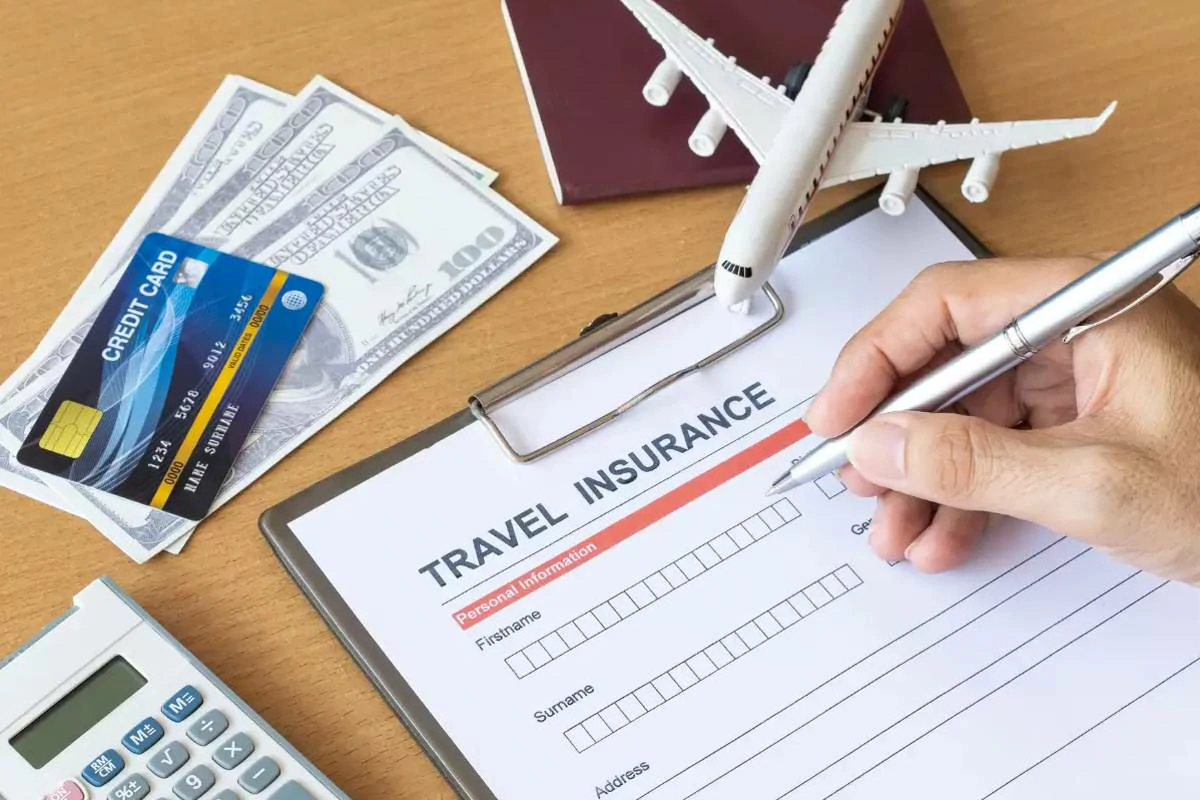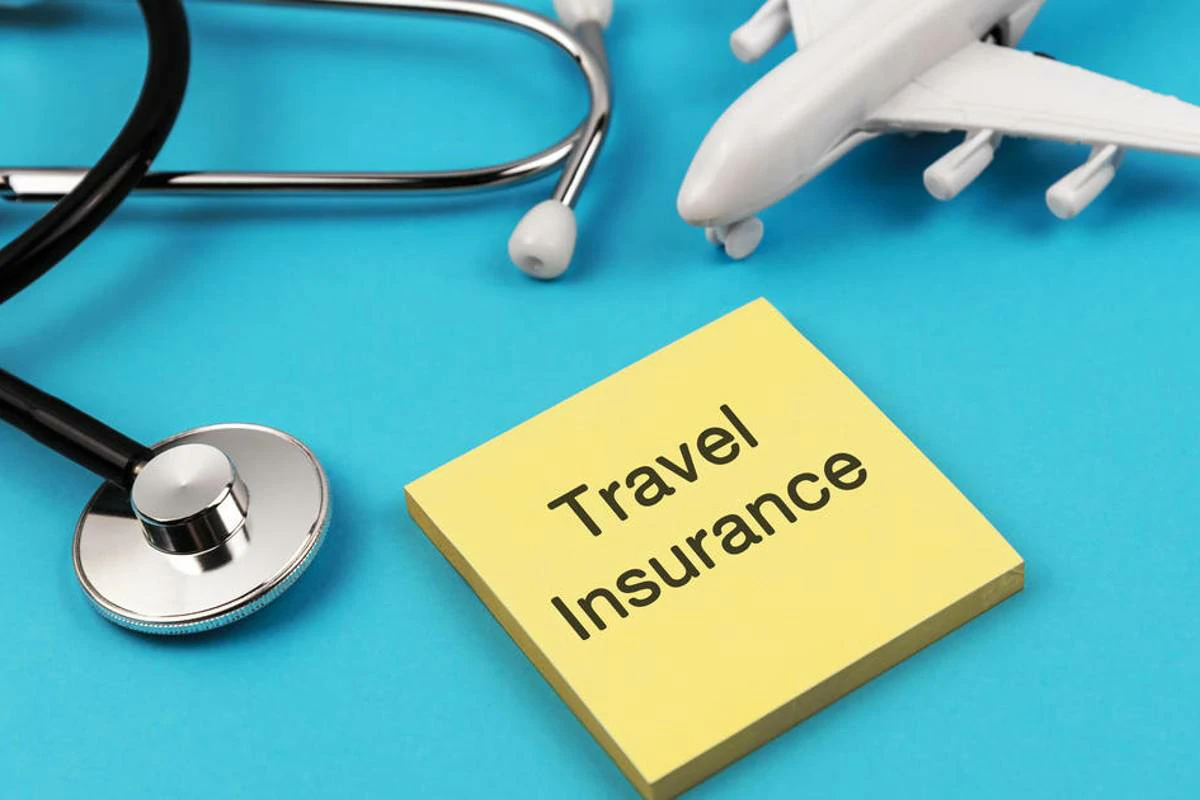Is Trip Insurance Worth It 2024? Answer is –Trip insurance can be a valuable investment for travelers, providing peace of mind and financial protection against unforeseen events that could disrupt or cancel your trip. While it might seem like an added expense, the potential benefits of travel insurance often outweigh the cost. Whether or not it’s worth it for you depends on several factors, including your destination, trip cost, personal health, and risk tolerance.
Summary
- What is trip insurance: Insurance that protects travelers from financial losses due to trip cancellations, interruptions, delays, medical emergencies, lost baggage, and more.
- Coverage: Trip cancellation/interruption, medical expenses, emergency evacuation, baggage loss/delay, travel delays, accidental death & dismemberment.
- Exclusions: Pre-existing conditions (usually), high-risk activities (often), intentional acts, self-inflicted injuries, travel advisories.
- When it’s worth it: Expensive trips, international travel, cruises, adventure activities, health concerns, high-risk destinations.
- Cost: Varies based on coverage, trip cost, age, destination, and provider.
- Credit card insurance: Often limited coverage, may not cover pre-existing conditions.
Is Trip Insurance Worth It 2024?

Planning a trip, whether it’s a weekend getaway or a months-long adventure, involves a lot of time, effort, and money. While we all hope for smooth sailing, unexpected events can arise that can disrupt or even derail our travel plans. This is where trip insurance comes into play.
What is Trip Insurance?
Trip insurance is a type of insurance designed to protect travelers from financial losses due to various unforeseen circumstances that may occur before or during a trip. It offers coverage for a wide range of situations, including:
Trip Cancellation or Interruption: If you have to cancel or cut short your trip due to covered reasons such as illness, injury, or a family emergency, trip insurance can reimburse you for non-refundable expenses like flights, hotels, and tours.
Medical Emergencies and Evacuation: If you get sick or injured while traveling, trip insurance can cover medical expenses, hospitalization, and even emergency medical evacuation back home.
Baggage Loss or Delay: If your luggage is lost, stolen, or delayed, trip insurance can reimburse you for the cost of essential items and the value of your belongings.
Travel Delays: If your trip is delayed due to factors like bad weather or airline strikes, trip insurance can cover additional expenses like meals, accommodation, and transportation.
Is Trip Insurance Worth It 2024?
The decision of whether or not to purchase trip insurance is a personal one and depends on various factors, including:
The Cost of Your Trip: If you’ve invested a significant amount of money in your trip, trip insurance can provide peace of mind knowing that you’re protected from potential financial losses.
The Destination and Type of Trip: If you’re traveling to a remote location or engaging in adventurous activities, trip insurance can be especially valuable in case of medical emergencies or evacuations.
Your Personal Health and Risk Tolerance: If you have pre-existing medical conditions or are concerned about potential health issues while traveling, trip insurance can offer essential medical coverage.
Ultimately, the value of trip insurance lies in the peace of mind it offers, allowing you to focus on enjoying your travels without worrying about unforeseen events.
Carol Mueller Expert Opinion
“Trip insurance is like a safety net for your travels,” says Carol Mueller, Vice President of Travel Guard. “It can help protect you from unexpected events and provide financial security, allowing you to relax and enjoy your trip.”
What Does Travel Insurance Cover?

Understanding the specific coverages offered by travel insurance is crucial in making an informed decision about whether it’s right for you. Let’s delve into the key areas where travel insurance can provide invaluable protection:
1. Trip Cancellation/Interruption
Life is unpredictable, and sometimes circumstances beyond our control can force us to cancel or interrupt our travel plans.
Trip cancellation/interruption coverage reimburses you for pre-paid, non-refundable trip expenses if you have to cancel before departure or cut your trip short due to covered reasons.
These reasons typically include:
- Unexpected illness or injury: If you or a traveling companion become seriously ill or injured before or during your trip.
- Death in the family: If a family member passes away.
- Natural disasters or severe weather: If your destination becomes unsafe due to a hurricane, earthquake, or other natural disaster.
- Terrorist incidents: If a terrorist attack occurs at your destination or en route.
- Jury duty or military deployment: If you’re unexpectedly called for jury duty or military service.
Angela Borden Expert Opinion
“Trip cancellation/interruption coverage is a must-have for any traveler,” advises Angela Borden, a travel insurance expert at Squaremouth, a leading travel insurance comparison website. “It can save you thousands of dollars in lost trip costs if the unexpected happens.”
2. Medical Expenses and Emergency Evacuation
Falling ill or getting injured while traveling can be a nightmare, especially in a foreign country. Travel medical insurance covers medical expenses incurred during your trip, including:
- Doctor’s visits and hospital stays: If you need to see a doctor or be hospitalized due to illness or injury.
- Prescription medications: If you require medication while traveling.
- Emergency medical evacuation: If you need to be transported to a medical facility or back home due to a serious medical condition.
Emergency medical evacuation can be incredibly expensive, sometimes costing tens of thousands of dollars. Having travel insurance with this coverage can ensure you receive the necessary medical care without incurring a devastating financial burden.
3. Baggage Loss/Delay
Lost or delayed luggage can disrupt your travel plans and leave you without essential items. Baggage loss/delay coverage reimburses you for:
- Lost or stolen baggage: If your luggage is lost or stolen by the airline or during your trip.
- Delayed baggage: If your luggage is delayed for a certain period, typically 24 hours or more.
This coverage typically provides reimbursement for the value of your belongings, up to a specified limit. It may also cover the cost of essential items you need to purchase while waiting for your delayed luggage.
4. Travel Delays
Travel delays are an unfortunate reality of modern travel, whether due to bad weather, mechanical issues, or unforeseen events.
Travel delay coverage can reimburse you for additional expenses incurred due to a covered delay, such as:
- Accommodation: If you need to stay in a hotel overnight due to a flight cancellation or missed connection.
- Meals: If you miss a meal due to a delay and have to purchase food at the airport or elsewhere.
- Transportation: If you need to take a taxi or other transportation to reach your destination due to a delay.
Kasara Barto Expert Opinion
“Travel delay coverage is a lifesaver when your trip doesn’t go according to plan,” says Kasara Barto, a travel expert and founder of the travel blog “The Travel Brief.” “It can help you cover unexpected expenses and make a frustrating situation a little more bearable.”
5. Accidental Death & Dismemberment (AD&D)
While it’s not a pleasant topic to think about, accidental death and dismemberment coverage provides a financial benefit to your beneficiaries in the unfortunate event of your death or serious injury due to an accident while traveling. This coverage can help your loved ones cope with the financial burden of your loss.
6. Other Coverage Options
In addition to the core coverages mentioned above, many travel insurance policies offer various optional coverages to cater to your specific needs. Some of these options include:
- Cancel For Any Reason (CFAR): This upgrade allows you to cancel your trip for any reason, not just covered reasons, and receive a partial refund of your trip costs.
- Rental Car Damage: This covers damage to a rental car due to collision, theft, or vandalism.
- Identity Theft Protection: This provides assistance and coverage for expenses related to identity theft while traveling.
- Pre-existing Medical Condition Coverage: This can be added to waive the exclusion for pre-existing conditions, providing coverage for medical expenses related to a pre-existing condition.
What Does Travel Insurance NOT Cover?

While travel insurance offers valuable protection, it’s equally important to understand its limitations. Being aware of what’s not covered can help you make informed decisions and avoid any surprises when filing a claim.
1. Pre-existing Conditions
One of the most common exclusions in travel insurance policies is pre-existing medical conditions.
These are typically defined as any illness, injury, or medical condition for which you sought medical advice, diagnosis, care, or treatment within a certain period before purchasing the policy.
Daniel Durazo Expert Opinion
“It’s crucial for travelers with pre-existing conditions to carefully review their policy and understand the specific terms regarding coverage,” advises Daniel Durazo, Director of Marketing and Communications for Allianz Partners USA, a leading travel insurance provider. “Some policies may offer waivers for pre-existing conditions under certain circumstances.”
2. High-Risk Activities
Many travel insurance policies exclude coverage for injuries or accidents that occur while participating in high-risk activities. These can include:
- Extreme sports: Bungee jumping, skydiving, rock climbing, etc.
- Motorsports: Motorcycle racing, car racing, etc.
- Scuba diving: Beyond a certain depth or without proper certification.
- Mountain climbing: Above a certain altitude.
If you plan on engaging in any high-risk activities during your trip, it’s essential to check if your policy covers them or consider purchasing additional adventure sports coverage.
3. Intentional Acts and Self-Inflicted Injuries
Travel insurance policies universally exclude coverage for any claims arising from intentional acts or self-inflicted injuries.
This means that if you deliberately cause harm to yourself or others, or engage in reckless behavior that leads to injury, your insurance will not cover the resulting medical expenses or other losses.
Megan Cruz Expert Opinion
“Travel insurance is designed to protect you from unforeseen events, not from the consequences of your own choices,” explains Megan Cruz, a licensed insurance agent and founder of the personal finance blog “The Frugal Traveler.” “It’s important to be responsible and avoid risky behavior while traveling.”
4. Travel Advisories and Unforeseen Events
In some cases, travel insurance may not cover losses incurred due to events that were foreseeable or known before you purchased the policy.
This can include travel advisories issued by your government warning against travel to a particular destination due to safety concerns or political instability.
Similarly, if you travel against medical advice or knowing that a pre-existing condition could be exacerbated by the trip, your insurance may not cover related medical expenses.
5. Other Common Exclusions
In addition to the exclusions mentioned above, there are several other common exclusions to be aware of:
- Acts of war or terrorism: Most policies exclude coverage for events caused by acts of war or terrorism.
- Nuclear disasters: Claims related to nuclear events are typically excluded.
- Participation in illegal activities: If you engage in illegal activities during your trip, your insurance will not cover any resulting injuries or losses.
- Pregnancy and childbirth: Complications related to pregnancy or childbirth are often excluded unless specific coverage is purchased.
- Mental health conditions: Some policies may exclude coverage for mental health conditions unless they are specifically included.
When is Travel Insurance Not Necessary?

While travel insurance can be invaluable in many situations, it’s not always essential for every trip.
Understanding when it might not be necessary can help you save money and allocate your travel budget more effectively.
1. Domestic Travel with Flexible Plans
If you’re embarking on a domestic trip within your home country, and your travel arrangements are flexible (e.g., refundable flights and hotels), the need for trip cancellation or interruption insurance might be less pressing.
In such cases, if unforeseen circumstances arise, you might be able to modify or cancel your plans without incurring significant financial losses.
Scott Keyes Expert Opinion
“For domestic trips with flexible bookings, the risk of losing a substantial amount of money due to cancellation is lower,” explains Scott Keyes, founder of Scott’s Cheap Flights, a platform that helps travelers find affordable flight deals. “However, it’s still wise to consider medical coverage if your health insurance doesn’t offer adequate protection while traveling.”
2. Short, Inexpensive Trips
If you’re planning a short weekend getaway or a budget-friendly trip, the potential financial loss due to cancellation or interruption might be relatively small. In such cases, the cost of travel insurance might outweigh the potential benefits.
However, even for short trips, it’s crucial to consider medical coverage, especially if you’re traveling internationally or have pre-existing health conditions. Unexpected medical expenses can quickly escalate, and having insurance can provide essential financial protection.
3. Good Health and Low-Risk Activities
If you’re in good health and not planning to engage in any high-risk activities during your trip, the need for comprehensive travel medical insurance might be less pressing.
However, it’s still wise to check if your existing health insurance provides coverage while traveling, especially if you’re venturing outside your home country.
Dr. Richard Dawood Expert Opinion
“Even if you’re in good health, unexpected accidents can happen anywhere,” cautions Dr. Richard Dawood, a specialist in travel medicine. “A simple slip and fall can lead to costly medical bills, particularly if you’re abroad. Having travel medical insurance can provide peace of mind and protect you from unexpected expenses.”
4. Comprehensive Credit Card Coverage
Many premium credit cards offer travel insurance benefits as a perk for cardholders. These benefits can include trip cancellation/interruption coverage, baggage delay/loss coverage, and even emergency medical evacuation.
Sally French Expert Opinion
“If you have a credit card that offers comprehensive travel insurance, it might be sufficient for your needs, especially for shorter trips,” says Sally French, a travel expert and founder of the travel rewards website “The Points Guy.” “However, it’s crucial to review the terms and conditions carefully to understand the coverage limits and exclusions.”
When is Trip Insurance Worth It?

While the decision to purchase travel insurance is personal, certain situations significantly increase the value proposition of having this safety net in place.
Let’s explore some scenarios where trip insurance becomes a wise investment:
1. Expensive Trips
If you’ve invested a considerable sum of money in your trip, including non-refundable flights, luxury accommodations, and pre-booked excursions, trip insurance becomes essential.
It acts as a safeguard against unforeseen events that could lead to substantial financial losses.
Suzanne Morrow Expert Opinion
“For high-value trips, trip insurance is not a luxury but a necessity,” emphasizes Suzanne Morrow, a certified financial planner specializing in travel insurance. “Losing thousands of dollars due to a canceled trip can be devastating. Travel insurance provides peace of mind knowing your investment is protected.”
2. International Travel
Traveling abroad often involves more uncertainties than domestic travel.
Flights can be more expensive, medical care in foreign countries can be costly, and emergencies like political unrest or natural disasters can disrupt your plans.
Trip insurance can mitigate these risks by providing coverage for:
- Medical emergencies: Covering medical expenses and emergency evacuation in a foreign country.
- Trip cancellation or interruption: Reimbursing you for non-refundable expenses if you have to cancel or cut short your trip due to covered reasons.
- Political evacuation: Covering evacuation costs if political unrest or a natural disaster forces you to leave the country.
Dr. Lin Chen Expert Opinion
“When traveling internationally, it’s crucial to have adequate medical coverage, as your domestic health insurance might not be accepted abroad,” advises Dr. Lin Chen, an infectious disease specialist and hospital epidemiologist at Mount Auburn Hospital. “Travel insurance can fill this gap and ensure you have access to quality medical care if needed.”
3. Cruises
Cruises present unique risks, such as missed port calls, shipboard medical emergencies, and the potential for itinerary changes due to unforeseen circumstances.
Cruise-specific travel insurance policies often include additional coverages tailored to these scenarios, such as:
- Missed connection: Reimbursing you for additional travel expenses if you miss the cruise departure due to a flight cancellation or delay.
- Cabin confinement: Providing compensation if you’re confined to your cabin due to illness or injury.
- Itinerary change: Reimbursing you for pre-paid shore excursions that are canceled due to itinerary changes.
Tanner Callais Expert Opinion
“Cruise travel insurance is highly recommended due to the unique nature of cruise vacations,” says Tanner Callais, a cruise expert and founder of the travel blog “Cruzely.” “It can protect you from financial losses and ensure you have a smooth and enjoyable cruise experience.”
4. Adventure Activities
If your travel plans involve adventure activities like scuba diving, mountain climbing, skiing, or snowboarding, trip insurance can be a lifesaver.
These activities carry inherent risks of injury, and medical evacuations in remote locations can be exorbitantly expensive.
James Kaiser Expert Opinion
“Adventure travelers should prioritize travel insurance that specifically covers their chosen activities,” advises James Kaiser, an adventure travel writer and author of the guidebook “Costa Rica: The Complete Guide.” “Many standard policies exclude coverage for high-risk activities, so it’s crucial to choose one that aligns with your adventurous spirit.”
5. Health Concerns or Pre-existing Conditions
If you have pre-existing health conditions or concerns about potential health issues while traveling, travel insurance with comprehensive medical coverage is essential.
Ensure the policy includes coverage for pre-existing conditions if applicable, and consider adding a Cancel For Any Reason (CFAR) upgrade for maximum flexibility.
Dr. William W. Lang Expert Opinion
“Travelers with health concerns should consult with their doctor before their trip and ensure their travel insurance covers their specific needs,” recommends Dr. William W. Lang, a board-certified travel medicine specialist. “This can prevent unpleasant surprises and ensure you receive appropriate medical care while traveling.”
6. High-Risk Destinations
If you’re venturing to a destination with a higher risk of political unrest, natural disasters, or other unforeseen events, trip insurance can offer valuable protection.
Look for policies that include coverage for political evacuation, trip interruption due to unforeseen events, and medical evacuation to ensure your safety and financial well-being.
The U.S. Department of State’s travel advisories website, can help you assess the risk level of your destination and make informed decisions about travel insurance.
Where to Buy Travel Insurance

Finding the right travel insurance policy can seem like a daunting task, but with the right resources and guidance, it doesn’t have to be. Let’s explore the various channels available for purchasing travel insurance:
1. Comparison Websites
Comparison websites like Squaremouth, InsureMyTrip, and TravelInsurance.com are excellent resources for researching and comparing different travel insurance policies.
These platforms allow you to enter your trip details and preferences, and they generate quotes from multiple insurers, making it easy to compare coverage options, prices, and customer reviews.
Stan Sandberg Expert Opinion
“Comparison websites are a great starting point for your travel insurance search,” says Stan Sandberg, co-founder of TravelInsurance.com. “They provide a convenient way to see a wide range of options and find a policy that fits your budget and needs.”
2. Travel Agents
Many travel agents offer travel insurance as part of their services. While this can be convenient, it’s important to compare their offerings with other options to ensure you’re getting the best value and coverage for your specific needs.
3. Insurance Companies
You can also purchase travel insurance directly from insurance companies like Allianz Travel Insurance, Travel Guard, and World Nomads. This allows you to explore the insurer’s full range of policies and customize your coverage options.
Carol Mueller Expert Opinion
“Purchasing directly from an insurance company can give you access to a wider range of policies and personalized customer service,” says Carol Mueller, Vice President of Travel Guard. “You can speak directly with an agent to discuss your needs and find the perfect policy for your trip.”
How Much Does Travel Insurance Cost?

While travel insurance offers invaluable protection, the cost is a significant factor to consider. Understanding the factors that influence the price and the typical costs for different types of trips can help you budget effectively and make an informed decision.
1. Factors Affecting Cost
The cost of travel insurance can vary widely depending on several factors, including:
Trip cost: The more expensive your trip, the higher the insurance premium, as the potential payout in case of cancellation or interruption is higher.
Length of trip: Longer trips generally require higher premiums, as the risk of unforeseen events increases with the duration of travel.
Destination: Some destinations, particularly those with higher medical costs or increased risks of political instability or natural disasters, may incur higher premiums.
Age of travelers: Older travelers might be charged higher premiums due to increased health risks.
Coverage options: The more comprehensive your coverage, the higher the premium. Optional coverages like Cancel For Any Reason (CFAR) or adventure sports coverage will also increase the cost.
Laura Adams Expert Opinion
“Travel insurance premiums are calculated based on a variety of factors,” explains Laura Adams, a senior insurance analyst at Forbes Advisor. “It’s important to compare quotes from multiple providers to find the best value for your specific needs.”
2. Typical Costs for Different Types of Trips
The average cost of travel insurance is typically 4% to 8% of your total trip cost. However, this can vary depending on the factors mentioned above. Here’s a general idea of what you might expect to pay for different types of trips:
Domestic Trips: For a week-long domestic trip costing $2,000, you might expect to pay around $80 to $160 for travel insurance.
International Trips: A two-week international trip costing $5,000 might incur a travel insurance premium of approximately $200 to $400.
Cruises: Cruise-specific travel insurance might cost slightly more due to additional coverages like missed connection and cabin confinement. For a $3,000 cruise, you could expect to pay around $120 to $240 for insurance.
Adventure Travel: If you’re planning an adventure trip with high-risk activities, expect to pay a higher premium for specialized coverage.
Should You Rely on Credit Card Travel Insurance Instead?

Many credit cards offer travel insurance benefits as a perk for cardholders, leading many to wonder if purchasing a separate travel insurance policy is necessary.
1. Benefits and Limitations of Credit Card Insurance
Benefits
- Convenience: Credit card travel insurance is often automatic when you use your card to book travel, eliminating the need to purchase a separate policy.
- Cost-Effective: It’s usually included as a complimentary benefit, saving you money on additional insurance costs.
- Decent Coverage: Many credit cards offer a decent level of coverage for trip cancellation/interruption, baggage delay/loss, and travel accidents.
Limitations
- Secondary Coverage: Credit card travel insurance is typically secondary, meaning it only kicks in after you’ve exhausted any other applicable insurance (e.g., your health insurance or homeowner’s insurance).
- Lower Coverage Limits: The coverage limits for trip cancellation/interruption and baggage loss/delay are often lower than those offered by standalone travel insurance policies.
- Limited Medical Coverage: Credit card medical coverage is usually minimal and might not cover pre-existing conditions or emergency medical evacuation.
- Restrictions: Coverage may be restricted to specific types of travel (e.g., flights booked with the card) or have other limitations.
Jason Steele Expert Opinion
“Credit card travel insurance can be a valuable perk, but it’s essential to understand its limitations,” says Jason Steele, a credit card expert and senior points and miles contributor at The Points Guy. “It’s not a one-size-fits-all solution and might not be sufficient for everyone.”
2. When to Consider Additional Coverage
While credit card travel insurance can be a good starting point, there are several scenarios where you might want to consider purchasing additional coverage:
- High-Value Trips: If your trip cost exceeds the coverage limits of your credit card insurance, a standalone policy can provide the necessary protection.
- International Travel with High Medical Costs: If you’re traveling to a country with high medical expenses or limited healthcare facilities, consider a policy with comprehensive medical coverage and emergency evacuation benefits.
- Pre-existing Conditions: If you have pre-existing health conditions, look for a standalone policy that offers coverage for these conditions or a waiver for the exclusion.
- High-Risk Activities: If you plan on participating in adventure sports or other high-risk activities, ensure your policy specifically covers them.
So, Is Travel Insurance Worth It?
With a clearer understanding of what travel insurance covers and when it might not be necessary, let’s revisit the fundamental question: Is travel insurance worth it? The answer, as with many things in life, depends on your individual circumstances and priorities.
1. Weighing the Costs and Benefits
Costs
- The premium for travel insurance typically ranges from 4% to 8% of your total trip cost.
- Optional coverages like Cancel For Any Reason (CFAR) can increase the price significantly.
Benefits
- Peace of Mind: Knowing you’re protected from unforeseen events allows you to relax and enjoy your trip.
- Financial Protection: Travel insurance can reimburse you for significant financial losses due to trip cancellations, interruptions, medical emergencies, or other covered events.
- Medical Coverage: If you’re traveling internationally or have pre-existing conditions, travel insurance can provide crucial medical coverage and emergency evacuation benefits.
- 24/7 Assistance: Many policies offer 24/7 assistance services, providing support and guidance in case of emergencies or unexpected situations.
Suzanne Morrow Expert Opinion
“Travel insurance is an investment in peace of mind,” says Suzanne Morrow, a certified financial planner specializing in travel insurance. “It’s a small price to pay for the reassurance that you’re protected from unexpected events that could derail your trip and lead to significant financial losses.”
2. Making an Informed Decision
To determine if travel insurance is worth it for you, consider the following questions:
- How much have you invested in your trip? If you’ve spent a significant amount on non-refundable flights, hotels, and activities, the potential loss could be substantial.
- Where are you traveling? Some destinations are more prone to natural disasters, political unrest, or have higher medical costs, increasing the need for insurance.
- What activities will you be doing? If you’re planning adventure activities or have health concerns, consider the medical coverage and specific activity coverage offered by different policies.
- What is your risk tolerance? Are you comfortable taking on the risk of potential losses, or would you prefer the peace of mind that comes with insurance?
By carefully evaluating these factors and comparing the costs and benefits, you can make an informed decision about whether travel insurance is a worthwhile investment for your trip.
The Bottom Line
Travel insurance is not a one-size-fits-all solution. Its value depends on your individual needs and the specifics of your trip. For some, it’s an essential safety net that ensures peace of mind and financial protection. For others, it might not be necessary, especially for short domestic trips with flexible plans.
Ultimately, the decision to purchase travel insurance is a personal one. By understanding the coverage options, exclusions, costs, and benefits, you can make an informed choice that aligns with your travel goals and risk tolerance.







